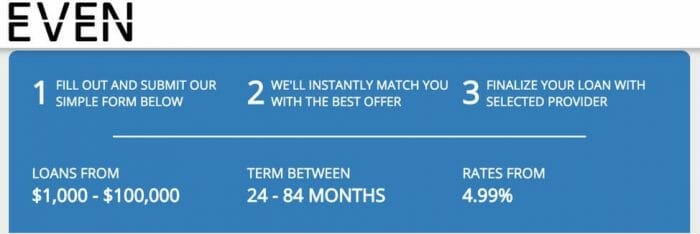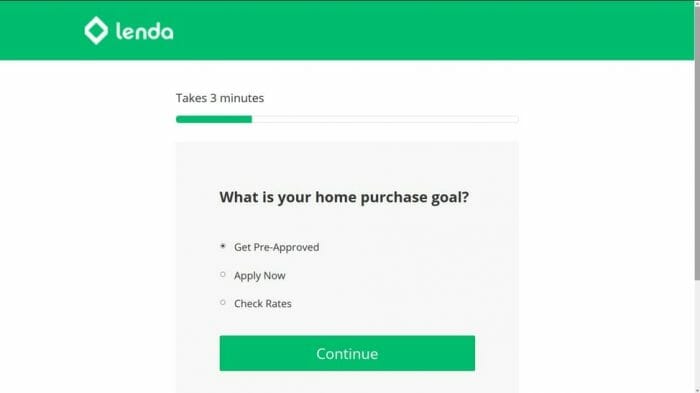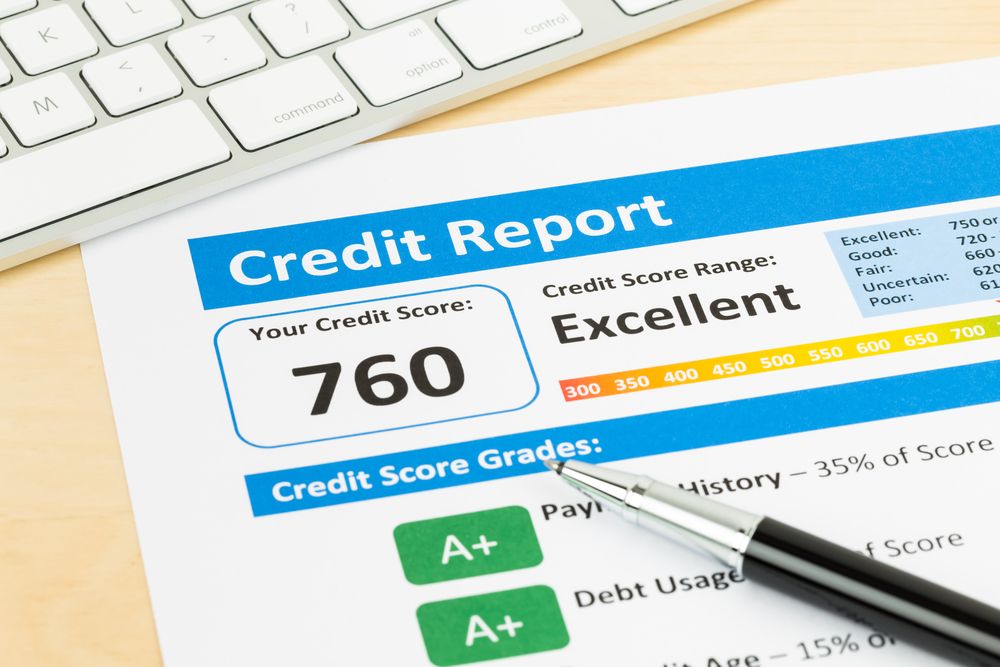Refinancing a mortgage can be a great way to lower your interest rate and monthly payments. But how does it affect your credit score? We have the answers.
Whether it’s a high-interest personal loan, a mortgage, or a credit card, refinancing your debts can be a good financial move. It can net you better repayment terms, including a lower interest rate. But any credit move, including a smart refinance, can affect your credit score.
Just how a refinance will affect your score depends largely on your circumstances. So I can’t say definitively what a refinance will do to your credit score. But we can explore some ways that it might affect your score. Then, you can decide whether or not a refinance is worthwhile–or if it might even boost your score in the long run.
Check LendingTree for the list of mortgage rates from preferred providers
In This Article:
- The Credit Inquiry
- Potential Changes
- When NOT to Refinance
The Credit Inquiry
Any time you apply for any sort of loan, you’ll get at least a small, temporary ding on your credit score. A credit inquiry shows lenders that you want to open new credit. Once in a while, this won’t hurt you much. But serial credit inquiries can make it seem like you’re desperate for new credit. And that doesn’t signal good things to lenders.
With that said, if you’re shopping around for a refinance rate, you can protect your score by keeping your shopping period tight. FICO’s formula, for one, will group together inquiries for the same type of credit. They understand that smart consumers shop for credit, especially for bigger items like a home or car.
The time you have available to shop around for credit depends on the scoring model used. Older FICO models give you two weeks, while newer models give you 45 days.
Bottom Line: To protect your score, only apply for a refinance if you’re serious about following through. And do all of your rate shopping within a two-week period, just to be safe.
Potential Changes
FICO’s formula and other credit scoring models look closely at your loan balances. They’re looking at overall balances, as well as changes in your balance. But exactly how the balance changes affect your score will depend on what you’re refinancing and how. Here are three different scenarios to consider.
Modifying an existing home loan
Modifying a loan may have less of an effect on your credit score, either way, than refinancing the debt with a new lender or loan. That’s because modification generally won’t change your balance or the account’s opening date.
When you modify a loan with the same lender, you generally just get better terms than you have right now. For instance, if your credit score is significantly better than it was 10 years ago when you bought your home, you may be able to approach your lender to ask for a better interest rate.
This loan modification may affect your score slightly, since the lender will pull a credit report to check your creditworthiness. But the overall effect of this move will likely be slight and short-lived.
Refinancing one car loan with another
What if your current lender won’t refinance your loan with better terms? In this case, you’ll need to approach alternative lenders to see if you can get a better deal.
You might do this with a car loan, especially if your credit has improved significantly since you took out the loan. When you open a brand new loan, it will have a few effects on your credit score.
For one thing, the new loan will show a new open date. Since part of your credit score is related to the average age of your accounts, this can pull your score down slightly. Opening a new account, though, typically will only have a large negative impact if you’ve opened a lot of other new accounts recently.
One thing to keep in mind here is that refinancing in this way could help you improve your credit score. For instance, if you’re getting a lower monthly payment, you can use the money you’re saving to pay down other debts more quickly. This could balance out the potential negative impact within a month or two.
Bottom Line: If refinancing to a new loan is a good move for other areas of your finances, don’t worry too much about its effect on your credit score. Just do your rate shopping in a timely fashion, and use the money you save wisely.
Using a personal loan to consolidate credit card debt
The last scenario we’ll consider is using a personal loan to refinance outstanding credit card balances. This move has some of the same caveats as the ones above. It’ll come with the ding from a credit inquiry, as well as a new account showing up on your record.
With that said, this move is the most likely to have a positive impact on your credit score. That’s because carrying balances on revolving debts like credit cards negatively affects your credit score. This is especially true when those balances are close to the limits on your credit cards.
FICO does look at the total amount of debt you owe, as well as the total amount you owe on credit cards versus installment accounts. Refinancing won’t really change your total amount owed. But it can move your amounts owed from riskier revolving accounts to more stable installment loans. This can be a boon for a struggling credit score, according to myFICO.
Of course, this option also has caveats. For instance, if you quickly run up balances on those accounts again, you’ll be even worse off than when you started. Or if you close the accounts, lowering your available revolving credit, you could also do more harm than good.
Bottom Line: If it saves you money in interest, refinancing credit card debts with an installment loan can be a good move. An even better option is to transfer your debts to a card with a 0% introductory APR offer. But the key with both of these approaches is to get your spending under control so that you don’t wind up even worse than you started off.
When NOT to Refinance
Generally, refinancing will have either a neutral or a positive effect on your credit score in the long run. However, you should avoid refinancing in a couple of situations, for the sake of your financial future.
Don’t refinance when your spending is out of control
As mentioned above, refinancing credit card debt and then charging up your balances again will only land you in worse trouble than when you began. So if your spending is still out of control, hold off on refinancing.
A better approach is to shred the credit cards–or at least get down to one for emergencies. Then, get onto a budget that keeps you from overspending and needing to use credit cards. As you find ways to save money, start consistently paying down your credit card debts.
If you can sustain these habits for a few months then you can look at refinancing. At that point, you’re getting on track financially, and you’re less likely to run up those balances again. So refinancing, or moving debts to 0% introductory APR cards, could help you reach your goals more quickly.
Don’t refinance when a big purchase is coming up
If you’re getting ready to buy a home or apply for a loan for a new car, now is not the time to refinance. In fact, it’s not a good idea to make any big credit moves before either of these events.
That’s because even that small, temporary ding from credit inquiries and opening a new account could cause your lender to get cold feet. It’s much better to wait until you close on the new loan, and then apply to refinance.
Don’t refinance if it’s not really a better deal
Sometimes a refinance only looks like a better deal. For instance, let’s say you have a $500 credit card balance at 10% interest. You can pay it off in a couple of months, but you get a 0% APR introductory deal. Sure, you won’t save much interest with the deal, but you’ll save some, right?
Not so fast! These deals often charge a balance transfer fee. It’s often a percentage of the balance, with a $5 minimum. You’re paying about $4 per month in interest on that card now. If you’re going to pay it off within a month or two, you may actually pay more in the balance transfer fee than you’ll pay in interest while waiting to pay it off!
The same goes for refinancing your home, although the break-even calculation gets a lot more complicated. Generally, home refinancing includes many of the same closing costs as buying a home. So you can’t just get into a better interest rate for free. In fact, you could have to front a few grand to refinance.
If you’re planning to stay in your home for a while, the savings on interest will likely be worth it. Even a percentage point or two makes a big difference over the life of such a large loan.
But what if you plan to sell your home within the next five years? In this case, refinancing may not be worth the money or effort.
Need help doing the math to see whether a refinance is worthwhile? Check out this calculator to help you make the calculations:
Payment options
Refinancing can affect your credit score positively or negatively, depending on your circumstances. Remember, credit scores are highly personal and contextual. So while you can be prepared, you may not be able to predict exactly how a refinance will affect your score. So only do a refinance if it will save you money and help improve your finances in other areas.
,





